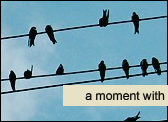SKOPJE ZOO WELCOMES THREE NEWLY BORN SIBERIAN TIGERS

National.
The Skopje Zoo welcomed three newly born Siberian tigers this morning at 9am. Sponsor of the newly reconstructed tiger's living quarters is former Skopje mayor Trifun Kostovski. He will have the honors of naming one of the tigers.
The Siberian tigers are considered an endangered species, with only 350-400 living in the wild.
MD: This is pretty special. It does not happen too often for new Siberian tigers to be born in captivity, especially not in Southeastern Europe.
[Kirilica]





























